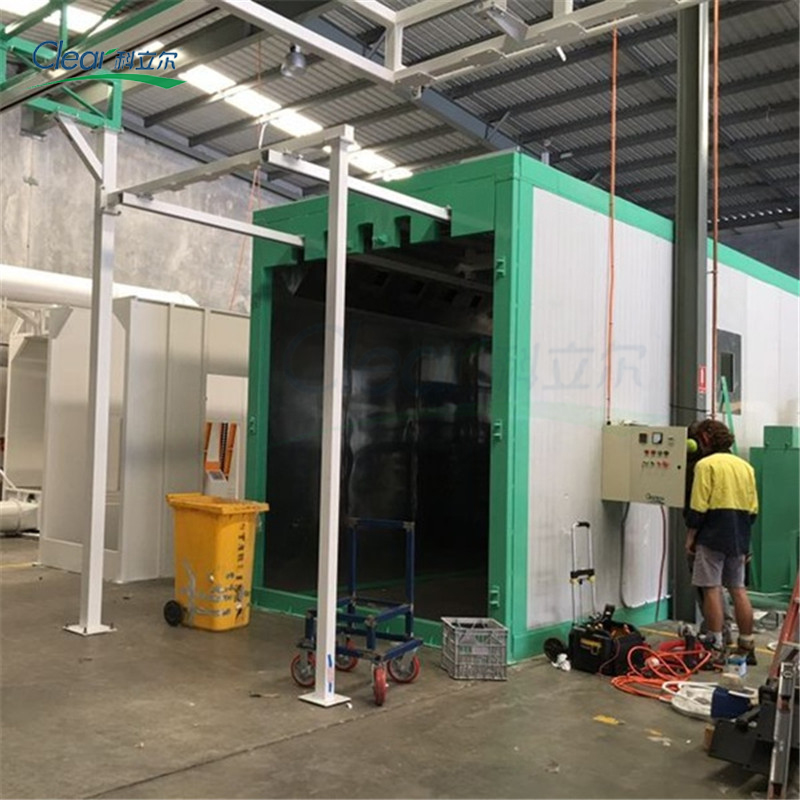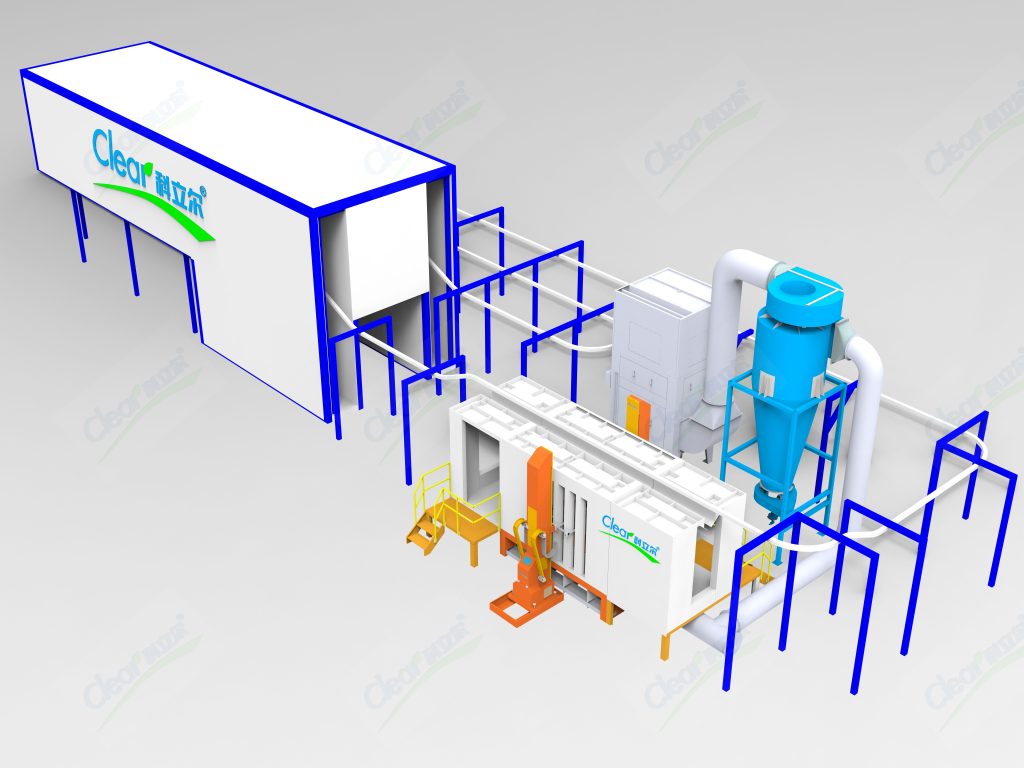When we first started building powder coating line at Yantai Clear, we focused on efficiency and finish quality. But over the years, we began seeing a silent problem in factories around the world—powder curing ovens that suddenly became dangerous after years of use.
Not because of poor design.
Not because of faulty materials.
But because no one told the operators how to use them safely for the long term.
Let’s talk about it. This article could save your factory from a devastating accident—and thousands in downtime or worse.
What Causes Oven Explosions in Powder Coating Lines?
In most cases, powder coating ovens don’t explode overnight. It’s a long-term buildup of conditions that quietly turn your curing system into a risk zone.

Here’s what we’ve seen after 10, 15, even 20 years of field visits:
1. Uncleaned Powder Accumulation in Ductwork or Heating Zones
What happens: Overspray or fine powder particles drift into the oven, settle in corners or ducts, and bake layer by layer until a small spark ignites them.
Where it goes wrong: Poor airflow design, no regular deep cleaning, or lack of inspection access panels.
🛠 Our suggestion:
Schedule a full internal cleaning every 6–12 months. Pay attention to ducting bends, heater surrounds, and under conveyor rails.
2. Blocked Exhaust Systems That Trap Volatile Gases
What happens: Organic compounds (like outgassed oils from metal parts or volatile powder resins) get trapped and eventually form explosive gas pockets.
Where it goes wrong: Exhaust fans not working at full RPM, or filters becoming clogged over time.
🛠 Our suggestion:
Check exhaust airflow with a manometer quarterly. Replace clogged filters immediately. Install automatic airflow alarms if possible.
3. Gas Burner Misfire or Incomplete Combustion
What happens: Gas builds up in the combustion chamber without igniting, then suddenly lights in one large burst.
Where it goes wrong: Faulty solenoid valves, dirty burner heads, or improperly timed ignition systems.
🛠 Our suggestion:
Have a licensed technician inspect burners annually. Keep ignition sequences properly calibrated, and never override safety interlocks.
4. Improper Loading of Flammable Products
What happens: Coating flammable plastics or foam inside a metal-targeted oven causes unexpected fume release and overheating.
Where it goes wrong: Lack of training when switching product types or introducing new materials.
🛠 Our suggestion:
Don’t treat ovens as one-size-fits-all. Confirm material compatibility and adjust curing parameters accordingly.
Best Practices for Safe Oven Operation — From Our Factory to Yours
Whether you’re using a manual batch oven or a fully automatic tunnel oven, here’s our expert protocol for long-term safety:
✅ Install explosion relief panels on the oven roof or walls—especially in gas-heated models.
✅ Train staff on emergency shutdown procedures. We include this in all our on-site commissioning.
✅ Use only certified flame sensors and replace them according to manufacturer specs.
✅ Ensure consistent airflow from intake to exhaust—this is more than just temperature; it’s about pressure balance.
Why We Build for Safety First
Every oven we build at Yantai Clear—whether it’s for aluminum profiles, motorcycle frames, or bus chassis—is designed with the long run in mind. We don’t cut corners on exhaust volume, gas valves, or internal pressure controls.
Because we know: What you don’t clean today might cost you your entire line tomorrow.
Final Words: Curing Is Not Just About Heat—It’s About Control
A powder coating oven isn’t just a hot box. It’s a chemical reaction chamber.
And every reaction needs to be controlled—air, time, gas, and flow.
That’s why we urge every powder coating facility to treat their oven with the same respect as their coating quality.
Because when ovens go wrong, they don’t just ruin your finish—they can destroy your factory.
🧰 Need Help Upgrading or Auditing Your Oven Safety?
We offer complete powder coating lines with gas or electric ovens, built to your product and safety standard.
We also provide retrofit upgrades, airflow balancing, and consultation for factories using older equipment.
👉 Contact Yantai Clear today and let’s make sure your oven works perfectly—not just today, but 10 years from now.

